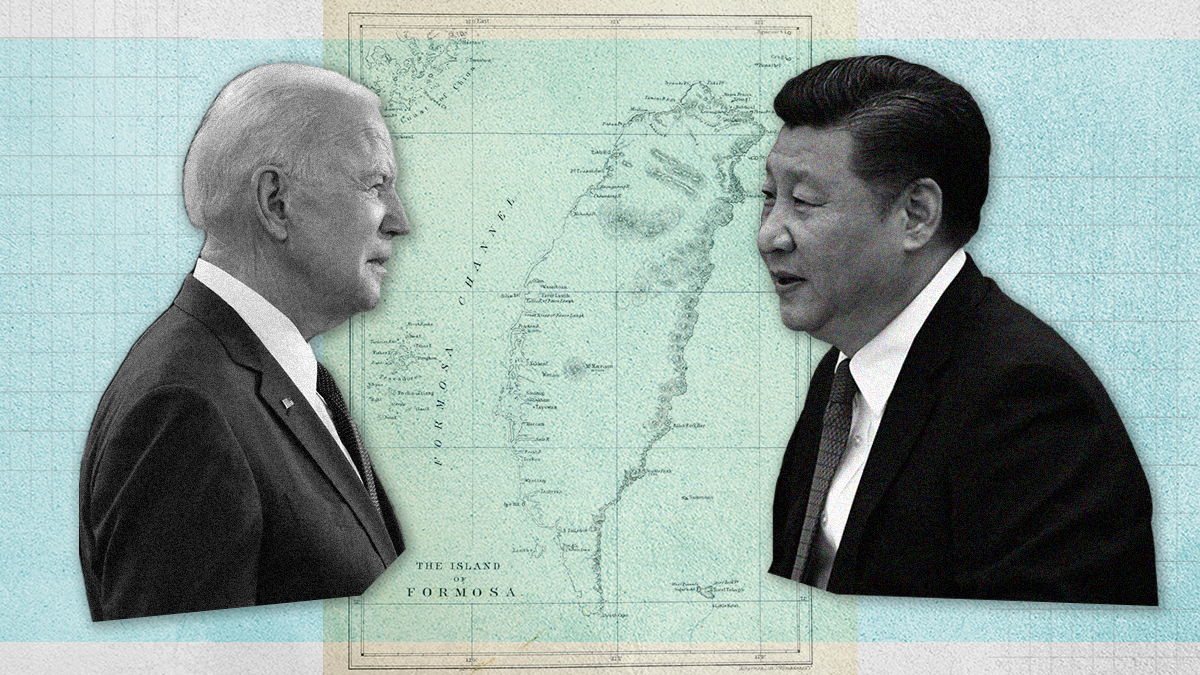September 19, 2022
China on Monday blasted the US for egging on Taiwan “separatists” after President Joe Biden vowed that the US would defend the self-ruled island from a Chinese invasion. Okay, nothing new here, right? Not exactly.
First, unlike current US support for Ukraine against Russia, which is limited to cash and weapons, Biden said that he’d send American troops to fight China. Second, the US president weighed in on American policy toward Taiwan for the first time since House Speaker Nancy Pelosi kicked a hornet’s nest in Beijing by visiting Taipei six weeks ago.
More importantly, Biden’s remarks follow a recent flurry of political smoke signals from Washington that aim to deter China from making a play for Taiwan. The US has responded to Beijing's military shows of force near the island after Pelosi's trip by announcing trade talks with Taipei, greenlighting its first big arms sale to the island, and leaking a threat of unspecified preemptive sanctions.
Biden has also signed into law the so-called CHIPS Act, which offers Taiwanese semiconductor makers subsidies to churn out more chips on US soil (thus leaving China with a smaller slice of the global pie). And less than a week ago, a Senate panel advanced a bill that would for the first time provide direct US military aid to Taiwan.
America’s message to China: If you move on Taiwan, we'll double down on making it a porcupine you won't want to touch.
Strategic what? Since 1979, US policy toward the island has been governed by the Taiwan Relations Act, which among other things mandates selling Taiwan arms to defend itself from a Chinese invasion. The law is intentionally vague about what the US would actually do in the event of an attack — a loophole often referred to as “strategic ambiguity.”
Yet, as China hawks push Biden to move toward “strategic clarity,” so far the president's rhetoric has instead produced "strategic confusion," says Bonnie Glaser, director of the Asia Program at the German Marshall Fund in Washington, DC.
For Glaser, recent actions and statements by US officials and lawmakers — later walked back by the White House — have led many to question what the US position on Taiwan really is. That’s a slippery slope with China, becoming irritated at what it perceives to be American doublespeak.
“I don't think that this helps strengthen deterrence [or] is going to make war in the Taiwan Strait less likely,” she adds.
So, why is Biden doing this? Perhaps he truly believes he's reaffirming longstanding US policy when discussing self-determination for the island, which Glaser finds “worrisome.”
There's also a US politics angle. Since being "tough” on China is pretty much the only thing Democrats and Republicans can agree on these days, poking Beijing is hardly a tough sell for Biden.
It won't get him any decisive votes in Wisconsin, but if the Dems pick up Senate seats in the midterms and ditch the filibuster, any bill overhauling US policy on Taiwan faces better odds of passing — even if the administration formally opposes it. That, in turn, would give Biden political cover to tell Xi Jinping his hands are tied with a coequal branch of government (the same way the president likely did with Pelosi’s trip).
China, for its part, sees all this as Washington trying to hollow out its own Taiwan policy. For Glaser, Biden didn’t get the memo that Beijing will never, ever allow Taiwan to become independent: “Going forward, if the US is not learning the lesson that China is trying to teach us, then they will continue to find ways to drive that lesson home.”
On the one hand, the more the US triggers China with Taiwan microaggressions, the harder Beijing will hit back in the Taiwan Strait. And if both sides keep dialing up the tension, that raises the risk of miscalculation on either side that might cross a red line into uncharted territory.
On the other hand, Glaser believes the situation is still “manageable.” Although Xi likes to talk up Taiwan reunification, he's already got enough on his plate with the sputtering economy and zero-COVID, while the “deadline” is ... 2049.
More For You
Most Popular
- YouTube
In this Quick Take, Ian Bremmer reacts to President Trump’s State of the Union address, calling it “a rehashing of the greatest hits” with little new policy direction.
Small business hiring surged 7% above the 2024 average in December, led by a surprise rally in retail. But with uncertainty still historically high and mounting concerns over tariffs, can this momentum survive 2026? Explore the data behind the resilience of the US small business sector. Get the latest economic insights from Bank of America Institute.
© 2025 GZERO Media. All Rights Reserved | A Eurasia Group media company.
